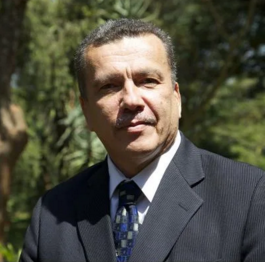Eastern Caribbean States embrace sustainable public procurement as a powerful tool for the COVID-19 recovery

Tuesday, November 3, 2020 — The United Nations Environment Programme (UNEP) and the Organisation of Eastern Caribbean States (OECS) launched a new project that aims to mainstream sustainability criteria in the public procurement process and increase capacity development, with a focus on the construction sector, unlocking the potential for a green COVID-19 recovery.
Public purchasing represents on average 15% of global GDP and in many developing countries up to 30% of their total economic activity. As part of global efforts to advance the 2030 Agenda for Sustainable Development, governments — as the largest consumers — are called upon to change their consumption habits in an effort to protect the environment, improve their social and economic landscapes, and lead by example.
The project was launched during an online event led by the Regional Director of UNEP in Latin America and the Caribbean, Leo Heileman, and the Director General of the OECS, Dr. Didacus Jules. Relevant speakers addressed the importance of sustainable public procurement for the achievement of the Sustainable Development Goals and the COVID-19 green recovery.
The project will support the development of sustainable public procurement frameworks and tools, as well as the building of capacity, in line with two ongoing initiatives in the Eastern Caribbean: the World Bank’s OECS Regional Health Project in the revision of the OECS Commission’s Public Procurement Manual, and the Global Climate Fund Enhancing Direct Access pilot project in Antigua and Barbuda, Dominica and Grenada.
Through these activities, the OECS Commission, as well as OECS Member States will be able to leverage the public procurement function in support of the sustainable development targets and the efforts to build back better after the current pandemic.


“Sustainable public procurement has an essential role to play in guiding post-COVID-19 economic recovery, as governments gradually shift their focus from saving lives to rebuilding livelihoods. It is important that authorities have coherent frameworks in place to move forward, and that is precisely what this new project is aiming at”, said Mr. Heileman.
“The evolution of the global financial and economic environment, the constant bombardment by disasters of epic proportions (as in the 2017 hurricane season), and now, the crippling effects of the COVID-19 pandemic, have made it increasingly important that the OECS Small Island Developing States (SIDS) band together to survive and thrive.
“Procurement is absolutely one of the keys and engines for such collaborative success; and The OECS Pharmaceutical Procurement Service (PPS) is a testament to such possibilities and opportunity”, stated Dr. Jules.
During the virtual meeting, both representatives signed a Memorandum of Understanding between UNEP and the OECS, providing a background for further cooperation in advancing sustainable public procurement policies, and supporting capacity-building activities, tools and guidelines to increase awareness in this area.
The agreement also envisions increased cooperation in the sound management of chemicals and waste, including marine pollution, in improving the resilience of the Caribbean countries in the face of disasters, and in effectively managing the environmental dimensions of emergencies.
About the UN Environment Programme (UNEP)
UNEP is the leading global voice on the environment. It provides leadership and encourages partnership in caring for the environment by inspiring, informing and enabling nations and peoples to improve their quality of life without compromising that of future generations.
About the Organisation of Eastern Caribbean States (OECS)
The OECS is an International Inter-governmental Organisation dedicated to regional integration in the Eastern Caribbean since 1981. It is now an eleven-member grouping comprising of the full Member States of Antigua and Barbuda, Commonwealth of Dominica, Grenada, Montserrat, St. Kitts and Nevis, Saint Lucia and St. Vincent and the Grenadines, and three associate member, the British Virgin Islands, Anguilla, Martinique and Guadeloupe.




